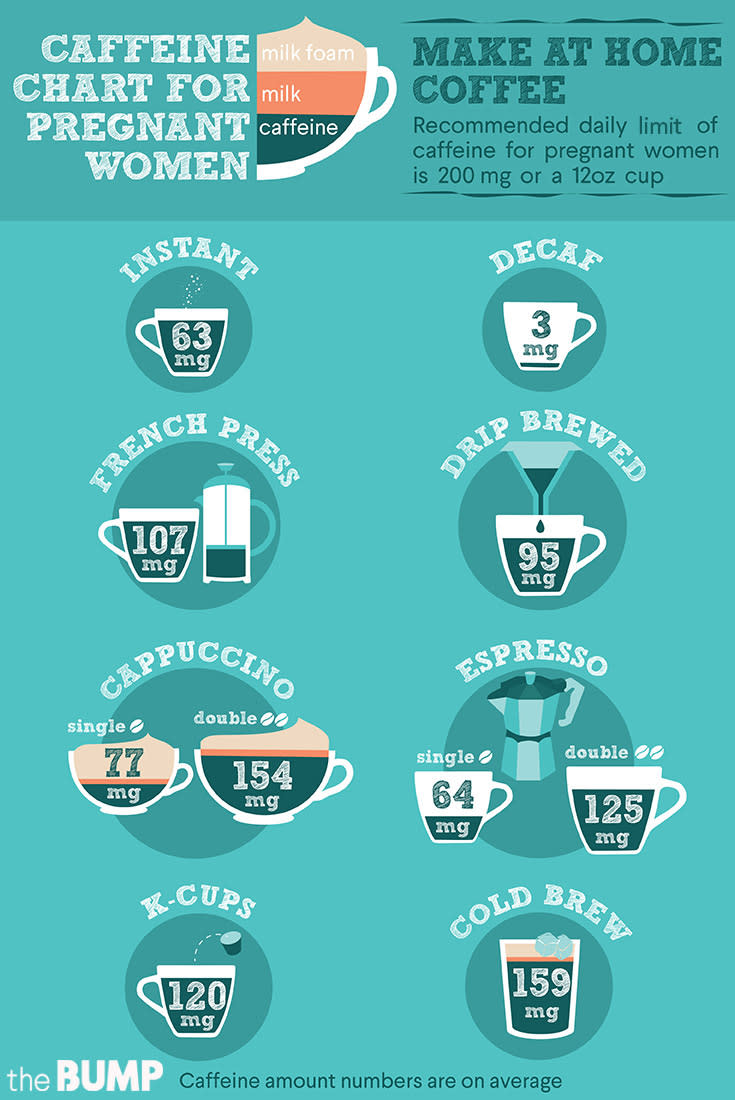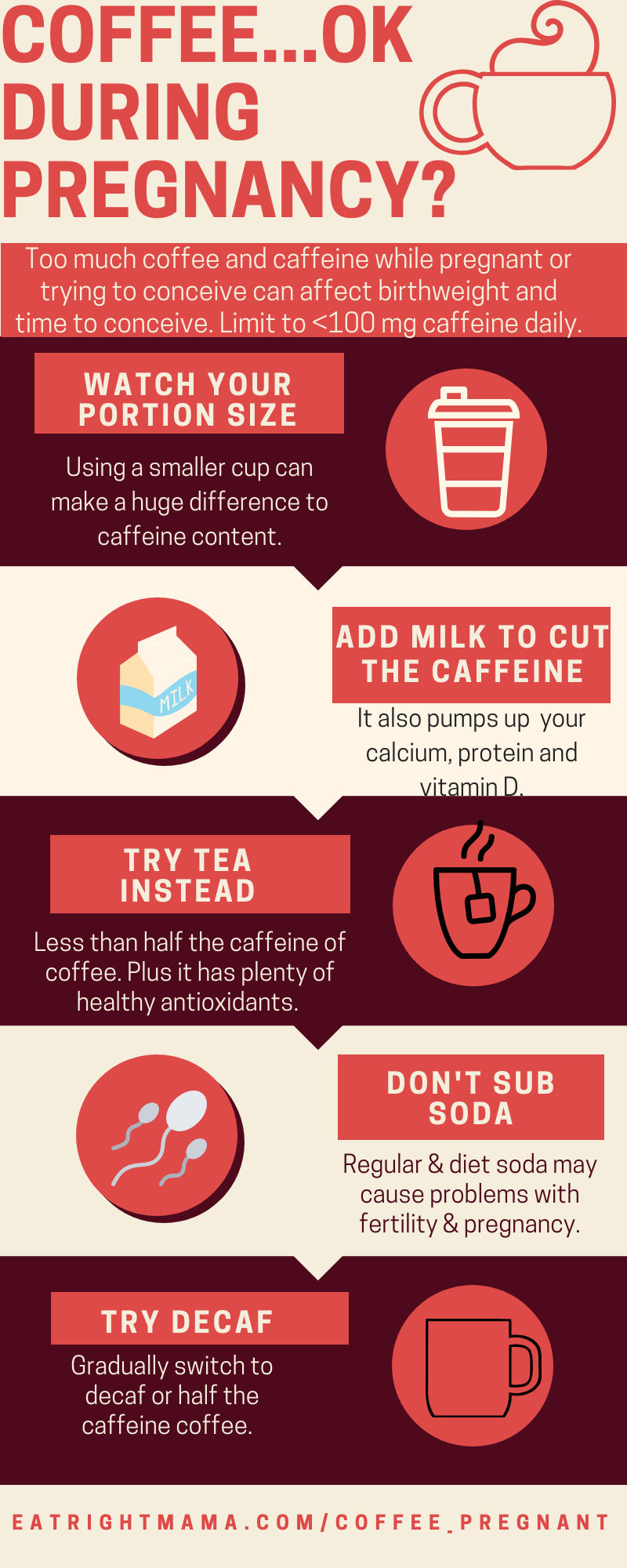Caffeine During Pregnancy

Contents:
- How Much Caffeine is Ok During Pregnancy
- How to Cope With Caffeine Addiction
- How to Minimize Symptoms Caused by Caffeine Withdrawal
- Is it Okay to Drink Caffeine During Pregnancy?
How Much Caffeine is Ok During Pregnancy
Caffeine (substance contained in coke, tea, soda and other beverages) and the related theobromine (contained in chocolate) penetrate into the circulatory system through the placenta.
Although animal studies showed caffeine’s adverse effect on animal embryo, studies on humans did not prove the harm it causes to the fetus if moderately consumed in pregnancy, that is, up to three cups of coffee or its equivalent within 24-hour day. Yet, it’s wholesome at all to quit drinking coffee with caffeine (or tea and coke) in pregnancy. At least, if pregnant, you should limit caffeine consumption for the time of child bearing.
Caffeine is first of all diuretic. It dewaters the organism causing harm to the health of the mother and fetus. Caffeine consumption intensifies urinary frequency and if you have problems with urination, you’d better stop taking it.
Second of all, coffee and tea may cause loss of appetite for a healthy meal since a person feels full with the coffee or tea served with cream and sugar. No nutrition is allowed, you see. Coke is also rich for the stomach. Likewise, it contains chemical compounds of suspected value and unwanted sugar.
Third, caffeine may cause aggravation of mood change so typical for pregnancy and disturb the peace. Fourth, it prevents iron absorption that is essential for the health.
Fifth, caffeine consumption in pregnancy is recently proved to result in diabetes mellitus in the child. And finally, most women lose the thirst for coffee in their early pregnancy and this proves that nature knows by itself what a pregnancy woman needs.
How to Cope With Caffeine Addiction

The first essential and easy way for pregnant women is motivation: less caffeine is healthier child. Then, you are advised to find out reasons of caffeine addiction and try to quit some certain drinks. If you feel toned with coffee or tea, or you just like warm drinks, replace them for equivalent drinks with zero caffeine. Never choose to replace milk, juices and other wholesome drinks. If you like coke for the taste of it, try other related beverages with no caffeine but the best ways is to start using 100 % fresh juices (papaya, mango, cherry juices and others) that are easily and diversely combined with other drinks and soda.
If you are used to have caffeine for blood pressure, there are better ways to do it. For example, fine meal, especially containing carbohydrates and proteins or some physical load like dancing, jogging, sex finally, may help. Several days later after you quit caffeine-containing drinks, you will feel better than ever before. Note that change of mood typical to early pregnancy is not the case. If you choose for coke or coffee just for nothing – go and get something to do in favor of your child. Try to learn to knit, or go shopping and look for a baby bed. As an alternative, get some vegetables peeled and have a snack. If you find something traditional in having caffeine drinks (coffee breaks, news reading, TV watching), feel free to change the tradition and related drinks.
How to Minimize Symptoms Caused by Caffeine Withdrawal
The one who is addicted to coffee, tea or coke perfectly knows that the willing to quit is one thing and the strong refusal is another. As with smoking, you’d better gradually quit drinking these beverages starting from the limited amount of caffeine to a couple of cups a day (during meal to minimize the adverse effect). Do it for a couple of days. As you are used to have the limited amount of caffeine, you gradually reduce the consumption to a cup of coffee a day. When you feel that you can do without coffee, absolutely refuse it. If not possible, replace with the coffee containing half of caffeine for the withdrawal period reducing its content with the time.